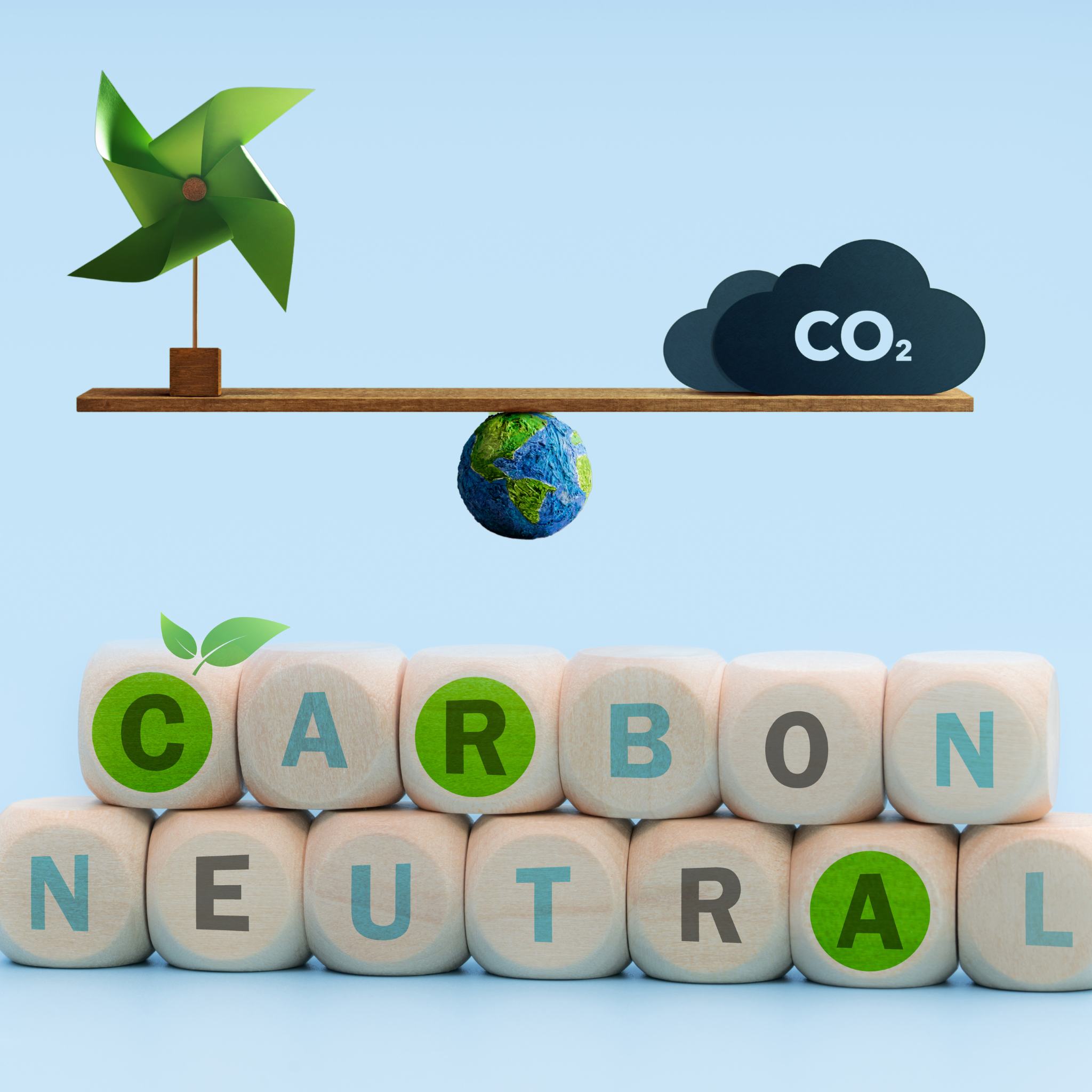Is Carbon Offsetting a Climate Scam? What's happening in 2025

The carbon offset industry wants you to feel guilty about your carbon footprint while they profit from your climate anxiety. They've built a $2 billion market selling you indulgences for environmental sins, but what if I told you the entire system is designed to keep you paying while changing nothing? What if the real opportunity isn't buying offsets, but selling them to others who haven't figured out the game yet?
You've been conditioned to believe that carbon offsetting represents meaningful climate action. The truth? It's a sophisticated guilt-management system that allows corporations and individuals to continue polluting while feeling virtuous about purchasing theoretical carbon reductions. Meanwhile, savvy entrepreneurs are building substantial income streams by understanding how this psychological marketplace really operates.
The Great Carbon Offset Deception
Every day, millions of people purchase carbon credits believing they're saving the planet. Airlines sell you offsets with your ticket. Corporations buy millions of credits to claim "carbon neutrality." The entire system depends on your guilt and their promises—but where's the actual environmental impact?
Independent investigations reveal that 85% of offset projects fail to deliver promised carbon reductions. Tree-planting initiatives die within five years. Renewable energy projects would have happened anyway. Methane capture systems break down without maintenance. Yet the credits keep selling, and the guilt keeps flowing.
This isn't environmental action, it's environmental theater. The offset industry has created a parallel economy where good intentions generate real profits for sellers while delivering minimal environmental benefits. But here's what they don't want you to know: you can flip this system and profit from the very psychology that's been exploiting you.
Why Carbon Guilt Is Big Business
The carbon offset market operates on manufactured shame. Companies spend billions convincing you that your individual carbon footprint matters more than their industrial emissions. They've weaponized climate anxiety to create a consumer market for environmental absolution.
Consider the psychology: you feel guilty about flying, driving, or heating your home. The offset industry offers instant relief through purchase. You pay $20 to "offset" your flight emissions, and suddenly you're environmentally responsible again. The guilt disappears, the behavior continues, and the money flows to offset providers.
This emotional manipulation generates massive profits. Carbon offset companies report 40-60% profit margins on credit sales. They buy credits wholesale for $2-5 each and sell them retail for $15-25. The markup isn't for environmental impact, it's for guilt relief.
The Hidden Economics of Offset Arbitrage
Smart entrepreneurs understand that carbon offset arbitrage represents one of the most profitable opportunities in the green economy. While consumers pay premium prices for guilt relief, wholesale carbon markets offer the same credits at massive discounts.
Here's how the arbitrage works: you purchase verified carbon credits directly from project developers for $3-8 per ton. You then sell these same credits to guilt-driven consumers for $20-35 per ton through your own offset platform or marketplace. The profit margins exceed those of most traditional businesses.
Environmental consultant Sarah Chen discovered this opportunity after researching offset markets for corporate clients. She now operates a carbon offset reselling business that generates $1,200-2,400 monthly by purchasing wholesale credits and selling them to environmentally conscious consumers through her website and social media channels.
Building Your Carbon Offset Income Stream
Month 1-2: Market Research and Setup
Study existing offset providers to understand pricing strategies and marketing approaches. Most successful offset resellers charge 300-500% markups over wholesale prices. Register your business and establish relationships with verified carbon credit suppliers in developing countries where credits cost $2-6 per ton.
Month 3-4: Platform Development
Create a simple website offering carbon offsets for common activities: flights, driving, home energy use. Use emotional language that emphasizes guilt relief and environmental responsibility. Price your offsets competitively but maintain healthy profit margins of 200-400%.
Month 5-6: Marketing and Customer Acquisition
Target environmentally conscious consumers through social media advertising and content marketing. Focus on travel bloggers, corporate sustainability managers, and affluent individuals who want to maintain high-carbon lifestyles while feeling environmentally responsible.
Month 7-12: Scaling and Optimization
Develop subscription offset services for regular customers. Create corporate offset packages for small businesses wanting to claim carbon neutrality. Expand into premium offset categories like "gold standard" or "verified" credits that command higher prices despite similar wholesale costs.
The Psychology of Profitable Guilt Management
Successful carbon offset entrepreneurs understand that they're selling emotional relief, not environmental impact. Your customers want to feel better about their consumption choices without actually changing their behavior. This psychological need creates consistent demand regardless of actual environmental outcomes.
Frame your offset offerings around lifestyle maintenance rather than lifestyle change. Instead of asking customers to fly less, offer them guilt-free flying through offset purchases. Instead of promoting energy conservation, sell them carbon-neutral energy consumption. You're enabling continued consumption while providing psychological comfort.
Environmental psychologist Dr. Michael Rodriguez explains that offset purchases trigger the same neurological reward pathways as charitable donations. Customers experience immediate satisfaction from their environmental "action" while avoiding the discomfort of actual behavior change. This psychological mechanism creates repeat customers and word-of-mouth referrals.
Advanced Offset Monetization Strategies
Corporate Offset Consulting
Small and medium businesses increasingly want to claim carbon neutrality for marketing purposes. Develop consulting packages that calculate their carbon footprints and sell them appropriate offset quantities. Charge $500-2,000 for footprint assessments plus ongoing offset sales. Many businesses will pay premium prices to outsource their environmental guilt management.
Event Offset Services
Weddings, conferences, and corporate events generate significant carbon emissions and guilt. Offer comprehensive event offset packages that calculate emissions from travel, catering, and energy use. Charge event planners $1,000-5,000 per event plus offset costs. Market these services as "carbon-neutral event planning" to environmentally conscious clients.
Subscription Offset Models
Develop monthly offset subscriptions for individuals and families. Calculate average household carbon footprints and offer monthly offset packages for $25-75. This recurring revenue model provides predictable income while requiring minimal ongoing effort. Market subscriptions as "carbon-neutral living" solutions.
Premium Offset Categories
Create tiered offset offerings with premium categories commanding higher prices. "Gold Standard" offsets sell for 50-100% more than basic credits despite similar wholesale costs. "Local" offsets appeal to customers wanting regional environmental impact. "Verified" offsets suggest additional quality assurance. These psychological distinctions justify significant price premiums.
The Technical Setup for Maximum Profits
Wholesale Credit Sourcing
Establish relationships with verified carbon credit registries and project developers. Focus on projects in developing countries where credits cost $2-8 per ton. Avoid expensive domestic projects that reduce your profit margins. Purchase credits in bulk to negotiate better wholesale prices.
Pricing Psychology
Price your offsets based on emotional value rather than cost-plus calculations. Research competitor pricing and position yourself in the premium segment. Customers associate higher prices with better environmental impact, even when the underlying credits are identical. Use psychological pricing like $19.99 instead of $20.00 to increase conversion rates.
Marketing Automation
Develop automated marketing funnels that nurture leads through educational content about carbon footprints and offset benefits. Use email sequences that build guilt about environmental impact while positioning your offsets as the solution. Automate follow-up campaigns for repeat purchases and referral generation.
Customer Retention Systems
Implement loyalty programs that reward repeat offset purchases. Offer volume discounts for large offset buyers. Create VIP programs for high-value customers with exclusive offset categories and personalized service. Focus on customer lifetime value rather than individual transaction profits.
Real Success Stories from Offset Entrepreneurs
Case Study 1: The Travel Blogger's Offset Empire
Travel blogger Jennifer Walsh felt guilty about promoting high-carbon travel while advocating for environmental responsibility. Instead of changing her content, she launched a travel offset service targeting fellow travel influencers and their audiences. She now earns $2,400 monthly selling flight offsets to travelers who want guilt-free adventures.
Case Study 2: The Corporate Sustainability Consultant
Former environmental engineer David Kim struggled to find meaningful work in corporate sustainability. He discovered that most companies wanted to appear environmentally responsible without changing operations. His carbon offset consulting business now generates $4,800 monthly helping businesses achieve "carbon neutrality" through strategic offset purchases.
Case Study 3: The Eco-Influencer's Monetization Strategy
Environmental influencer Maria Rodriguez built a large following promoting sustainable living but struggled to monetize her audience. She launched a personal carbon offset service allowing followers to offset their environmental guilt while supporting her content creation. Her offset sales now provide $1,800 monthly in passive income.
Common Mistakes New Offset Sellers Make
Mistake 1: Focusing on Environmental Impact
New offset sellers often emphasize actual environmental benefits rather than emotional relief. Customers buy offsets to feel better, not to understand complex environmental science. Focus your marketing on guilt relief and lifestyle enablement rather than technical environmental details.
Mistake 2: Underpricing Offset Services
Many entrepreneurs price offsets too close to wholesale costs, reducing profit margins unnecessarily. Customers expect to pay premium prices for environmental services. Price your offsets based on perceived value and competitor analysis rather than cost-plus calculations.
Mistake 3: Targeting Wrong Customer Segments
Environmental activists and climate scientists rarely purchase offsets because they understand the system's limitations. Target affluent consumers who want to maintain high-carbon lifestyles while feeling environmentally responsible. Focus on guilt-driven purchasing rather than impact-driven buying.
Mistake 4: Overcomplicating Offset Offerings
Complex offset categories and technical explanations confuse customers and reduce conversion rates. Simplify your offerings into clear categories like "flight offsets," "driving offsets," and "home energy offsets." Make purchasing decisions easy and emotionally satisfying.
The Regulatory Landscape and Profit Protection
Current Regulatory Environment
Carbon offset markets operate with minimal regulatory oversight, creating opportunities for entrepreneurial profit. Most offset standards are voluntary industry initiatives rather than government regulations. This regulatory gap allows creative marketing and pricing strategies that maximize profit margins.
Future Regulatory Risks
Increasing scrutiny of offset effectiveness may lead to stricter regulations and verification requirements. However, regulatory changes typically grandfather existing businesses and create barriers for new competitors. Established offset sellers often benefit from increased regulation that legitimizes their market position.
Compliance Strategies
Maintain relationships with verified carbon credit registries to ensure your offsets meet current standards. Document your offset sources and maintain transparent records for potential regulatory review. Consider obtaining voluntary certifications that enhance credibility and justify premium pricing.
Risk Mitigation
Diversify your offset sources across multiple project types and geographic regions. Avoid relying on single offset categories that might face regulatory challenges. Develop alternative revenue streams within the broader environmental services market to reduce dependence on offset sales.
Advanced Marketing Psychology for Offset Sales
Guilt Amplification Strategies
Effective offset marketing first amplifies customer guilt about their carbon footprint before offering relief through offset purchases. Use carbon footprint calculators that emphasize high emissions from normal activities. Present alarming statistics about climate change impacts. Then position your offsets as immediate, actionable solutions.
Social Proof and Authority
Leverage testimonials from satisfied customers who feel better about their environmental impact after purchasing offsets. Partner with environmental influencers and sustainability experts who endorse your offset services. Create case studies showing how businesses achieved carbon neutrality through your offset programs.
Urgency and Scarcity
Create artificial urgency around offset purchases by emphasizing limited availability of premium offset categories. Use countdown timers for special offset pricing. Highlight increasing carbon prices and suggest that current offset prices represent temporary opportunities.
Lifestyle Integration
Position offsets as essential components of environmentally conscious living rather than optional purchases. Create offset bundles for common activities like "carbon-neutral vacation packages" or "guilt-free commuting solutions." Make offset purchasing feel like a natural extension of environmental values.
The Future of Offset Entrepreneurship
Market Growth Projections
The voluntary carbon offset market is projected to reach $12 billion by 2030, driven by increasing climate anxiety and corporate sustainability commitments. This growth creates expanding opportunities for offset entrepreneurs who understand market psychology and customer motivations.
Technology Integration
Blockchain-based carbon credit tracking and automated offset purchasing systems are creating new business models and profit opportunities. Smart contracts enable subscription offset services and real-time carbon footprint offsetting. These technologies reduce operational costs while maintaining premium pricing.
Corporate Demand Expansion
Small and medium businesses increasingly seek carbon neutrality for competitive advantage and customer appeal. This expanding corporate market offers higher-value offset sales and consulting opportunities. B2B offset services typically generate 3-5x higher profit margins than consumer sales.
International Market Opportunities
Developing countries offer low-cost carbon credit sources while developed countries provide high-value offset markets. International arbitrage opportunities continue expanding as global climate awareness increases and offset demand grows across different economic regions.
Building Long-Term Offset Business Value
Brand Development
Successful offset businesses develop strong environmental brands that justify premium pricing and customer loyalty. Invest in professional branding that emphasizes environmental responsibility, scientific credibility, and customer impact. Your brand becomes your most valuable business asset.
Customer Relationship Management
Focus on customer lifetime value rather than individual transaction profits. Develop automated systems that nurture customer relationships and encourage repeat purchases. Create loyalty programs that reward ongoing offset buying and referral generation.
Strategic Partnerships
Partner with travel companies, event planners, and corporate sustainability consultants who can refer offset customers. Develop affiliate programs that reward partners for offset sales. Create white-label offset services that other businesses can offer under their own brands.
Exit Strategy Planning
Build your offset business with eventual sale in mind. Maintain clean financial records, documented customer relationships, and verified offset sources. Environmental service companies and sustainability consultancies regularly acquire successful offset businesses for 3-7x annual revenue multiples.
The Moral Complexity of Offset Entrepreneurship
Ethical Considerations
Offset entrepreneurship operates in the gray area between environmental service and guilt exploitation. While offsets provide minimal environmental impact, they offer genuine psychological value to customers seeking environmental responsibility. Your business provides a service that customers actively seek and value.
Impact vs. Profit Balance
Successful offset entrepreneurs balance profit maximization with genuine environmental concern. Consider donating portions of profits to effective climate organizations or investing in verified high-impact offset projects. This approach maintains business sustainability while addressing ethical concerns.
Transparency Standards
Maintain honest marketing about offset limitations while emphasizing emotional and lifestyle benefits. Avoid making exaggerated environmental claims while highlighting the psychological value of offset purchases. Transparency builds customer trust and reduces regulatory risks.
Long-term Sustainability
Build your offset business to survive increasing scrutiny of offset effectiveness. Focus on customer satisfaction and emotional value rather than environmental claims. Develop alternative revenue streams within the broader environmental services market to ensure business longevity.
Taking Action: Your First $1,200 Month
Week 1-2: Market Research
Study existing offset providers and identify pricing opportunities. Research wholesale carbon credit sources and establish initial supplier relationships. Calculate potential profit margins for different offset categories and customer segments.
Week 3-4: Business Setup
Register your offset business and create basic website infrastructure. Develop initial offset offerings for common activities like flights, driving, and home energy use. Set pricing based on competitor analysis and desired profit margins.
Week 5-8: Marketing Launch
Create content marketing campaigns targeting environmentally conscious consumers. Develop social media advertising focused on carbon guilt and offset solutions. Launch email marketing sequences that nurture leads through offset education and sales.
Week 9-12: Optimization and Scaling
Analyze customer acquisition costs and optimize marketing campaigns for profitability. Develop corporate offset services for higher-value sales. Create subscription offset models for recurring revenue generation.
The carbon offset market represents one of the most psychologically sophisticated business opportunities in the environmental sector. While traditional environmental businesses struggle with complex regulations and technical challenges, offset entrepreneurship leverages human psychology and guilt management for consistent profits.
Your success depends on understanding that customers buy emotional relief, not environmental impact. They want to feel better about their consumption choices without changing their behavior. This psychological need creates a sustainable market opportunity that grows with increasing climate awareness.
The $1,200 monthly income from offset sales isn't just possible, it's conservative for entrepreneurs who understand market psychology and customer motivations. The question isn't whether offset entrepreneurship can generate substantial income. The question is whether you'll claim your share of this growing guilt-management market.
Stop feeling guilty about your carbon footprint. Start profiting from others' climate anxiety. The offset industry has been exploiting environmental guilt for decades. Now it's your turn to flip the script and build wealth from the very system that's been manipulating you.





